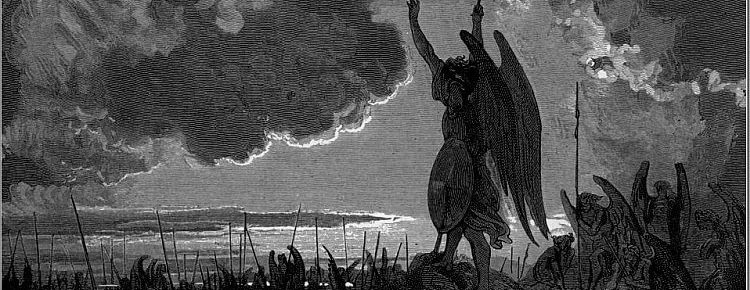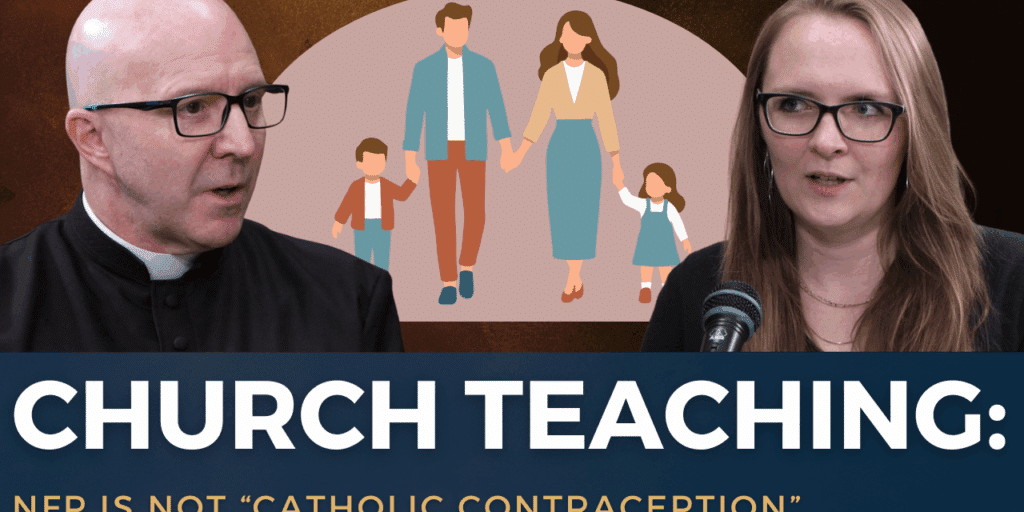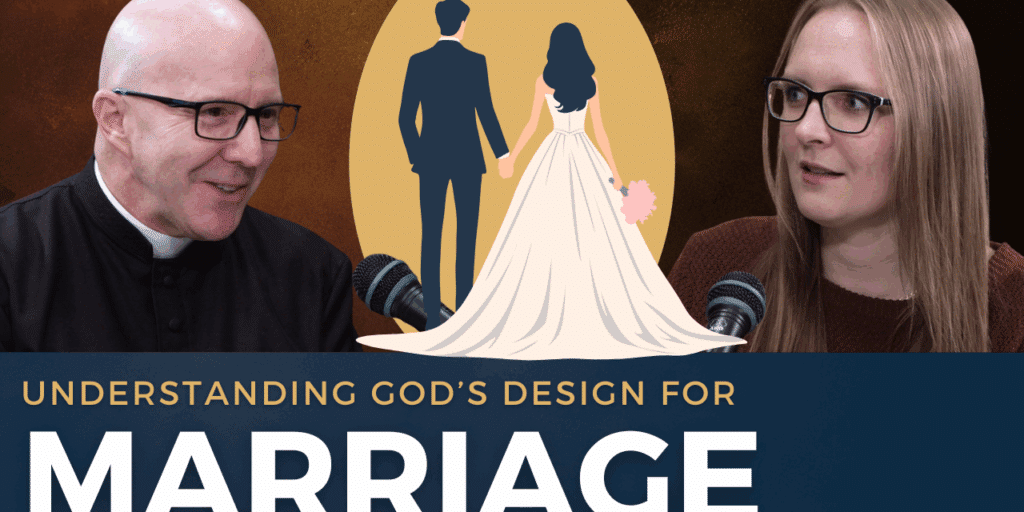A Christian Vision of Society and Civilization of Love
“Laws which authorize and promote abortion and euthanasia are…radically opposed not only to the good of the individual but also to the common good; as such they are completely lacking in authentic juridical validity. Disregard for the right to life, precisely because it leads to the killing of the person whom society exists to serve, is what most directly conflicts with the possibility of achieving the common good. Consequently, a civil law authorizing abortion or euthanasia ceases by that very fact to be a true, morally binding civil law.” ─ Pope St. John Paul II, Evangelium Vitae, no. 72
It is a true but underappreciated fact that animals in the wild almost never die of old age. Long before old age finishes them off, weakened animals succumb to disease, predators, or starvation. I say this fact is underappreciated, because it points to one of the most remarkable things about human beings: i.e. that we look out for one another, including – or rather, especially – the weakest among us. Rather than abandoning our grandmother when she can no longer work, we sacrifice our time and resources to ensure she is cared for and lives and ends her life surrounded by love.
Two Visions of Human Society
Some early modern philosophers claimed that civilization only came to exist because of our fear of one another, and our desire to look out for our own selfish interests. We band together into cooperative tribes, they say, only so as to counteract the threat of violence, and so that we can ultimately get the things we want. Civilization, in other words, is just a bunch of people who have agreed to some version of this promise: “If you don’t take my stuff, I won’t take your stuff.”
This is an incredibly narrow vision of human nature, and a dangerously reductionist understanding of the nature of society. The Christian vision of society is radically different. It is perhaps best expressed in the phrase used so often by Pope St. John Paul II: i.e. “the civilization of life and love.” As the phrase suggests, in a truly healthy society, people are bound together not by fear or self-interest, but rather by bonds of love for one another.

This vision is the natural outflowing of a radically different anthropology. Instead of viewing humans simply as highly developed animals striving like other animals for nothing more than food, sex, pleasure, and social status, the Christian vision understands human beings as made in the image and likeness of God, with the capacity for self-transcendence, and destined for eternal bliss in the contemplation of the Divine Essence. As the United States Conference of Catholic Bishops (USCCB) writes in their document entitled Catholic Social Teaching:
“Catholic social teaching is based on and inseparable from our understanding of human life and human dignity. Every human being is created in the image of God and redeemed by Jesus Christ and therefore is invaluable and worthy of respect as a member of the human family. Every person, from the moment of conception to natural death, has inherent dignity and a right to life consistent with that dignity. Human dignity comes from God, not from any human quality or accomplishment.”
The Catechism of the Catholic Church makes the same point, when it notes that an authentic understanding of the “common good” presupposes “respect for the person as such.” In the name of the common good, public authorities are bound to respect the fundamental and inalienable rights of the human person.”
Within the civilization of love, one person does not protect the rights and welfare of another in a calculating tit-for-tat arrangement in the hope that the other person will do the same for him. Instead, a person looks out for another because it’s the right thing to do: because the other person, by virtue of being a person, merits and even demands our protection and love.
In Evangelium Vitae, Pope St. John Paul II pointed to “those daily gestures of openness, sacrifice and unselfish care which countless people lovingly make in families, hospitals, orphanages, homes for the elderly and other centers or communities which defend life.” For two thousand years the Church has spearheaded countless such charitable efforts, building up the common good in imitation of our Divine Master, who commanded His disciples, “Love one another. As I have loved you, so you also must love one another.”
Human beings are capable of self-transcendence, of looking out for the other with no other ulterior motive than to value the other person for the person they are, and to treat them with the dignity they deserve. It is this incredible capacity that the cynical modern philosophers completely overlooked. And yet, without this capacity, human society is not just built on a foundation of sand, but of quicksand. Any society that is founded purely on principles of self-interest will, at the first sign of instability, tear itself apart. Inevitably, it is the weakest members who will suffer most.
The Culture of Death
The vision of “society” described by some cynical modern philosophers looks a great deal like that formed by Satan and his minions, as depicted by John Milton in Paradise Lost. Though consumed by envy and loathing for one another, the demons are united by their common hatred of God and a desire to pervert the human race. Satan is the overlord of a true society in which the members cooperate to achieve a common aim; but what sort of a society, with what sort of a culture!
A culture of sin. A culture of death.

In our world the civilization of love has never existed in its pure form – not, at least, since that short-lived civilization of two in the Garden of Eden. Instead, the civilization of love and the culture of death are intermingled. In various times and in various places, one or another civilization is ascendant, while the other is ailing.
My fear, however, is that not only is the culture of death now dominant, but that in many cases we have even lost sight of the fact that any other form of culture is desirable, or even possible. Indeed, I fear that what we are experiencing now is a diabolic inversion, in which the anti-civilization embodied by Satan and his minions, in which the only bond uniting us together is selfishness and shared hatreds, is viewed as the ideal.
Less than Beasts
A few weeks ago, I quoted St. Augustine in On the Trinity, where he notes the paradox that in striving to become like God, human beings inevitably debase themselves, coming instead to resemble the beasts. In reality, however, the case is worse than this. In striving to become like God, humans often sink beneath the level of the beasts, becoming, as it were, more bestial than beasts.
A mother cat knows enough to treasure and care for her kittens. In our worship of radical “autonomy” and a diseased notion of “freedom” (that is, in our efforts to become like God), however, we now celebrate the “right” of mothers and fathers to choose to have their own children murdered. And while an adult cat may not do much to protect its mother or grandmother in their old age, we are now championing the “right” of our grandmother to kill herself or to have our grandmother killed. The thing that most distinguishes human society from that of the animals – our valuing of other humans not for anything they can do, but for what they are – is vanishing.
At root, this total inversion of values stems from our loss of the sense of the dignity of the human person, which in turn stems from our loss of the sense of God, in whose image the human person is made. To quote Pope St. John Paul II in Evangelium Vitae again: “when the sense of God is lost, there is also a tendency to lose the sense of man, of his dignity and his life; in turn, the systematic violation of the moral law, especially in the serious matter of respect for human life and its dignity, produces a kind of progressive darkening of the capacity to discern God’s living and saving presence.”
Building a Civilization of Love
Contrary to the claims of cynical pragmatists, the most useful thing in the world is an unattainable ideal. Even though this ideal be unattainable, the person with such an ideal at least knows in what direction he should be moving. The modern “pragmatic” conception of society, which views it merely as a means to protect “freedom,” without any notion of what freedom is for, at best leaves people lost and confused, and at worst sends them marching in precisely the wrong direction.
As Christians we need to constantly remind ourselves of the ideal – Pope St. John Paul II’s “civilization of love” – and to resist the allure of the deceptions of the evil one. Even in conservative circles one often encounters the idea that the only reason society exists is to protect our “freedom” – understood in the narrow sense of the ability to do whatever we want. In reality, society exists to protect and promote the common good, understood in the rich sense of human flourishing. The common good, says the Catechism, is “the sum total of social conditions which allow people, either as groups or as individuals, to reach their fulfillment more fully and more easily.”
Human beings, however, only achieve their true fulfillment in relationships of love, firstly with one another, and ultimately with God. This Christian understanding of the “common good” as the creation of a civilization of love is an unattainable ideal. Such a civilization will never exist in a perfect form this side of Heaven. Nevertheless, to the extent that we transform this world into a foretaste of Heaven, it will only be because we have pursued such an ideal.
With such a beautiful ideal in mind, we in the pro-life and pro-family movement will gain new strength to labor against the great threats to that ideal in our own culture of death: abortion, euthanasia, embryonic stem cell research, and other such attacks on human life and dignity. Let us pray, then, with Pope St. John Paul II, as he prayed in Evangelium Vitae, “May God strengthen us in our effort to bring about a culture of life and solidarity for the true good of the whole of human society.”
Human Life International
As president of Human Life International, Fr. Boquet is a leading expert on the international pro-life and family movement, having journeyed to nearly 90 countries on pro-life missions over the last decade. Father Boquet works with pro-life and family leaders in 116 counties that partner with HLI to proclaim and advance the Gospel of Life. Read his full bio here.








Encouraging to read your stuff on this election night, Father Boquet.
I rather to read to articule in spanish, because i dont understsnd it well, in inglish. Thank yuo. And God bless all of you.
Felix, Muchos gracias! Thank you for the comment. We actually have an HLI website in Spanish – http://vidahumana.org/bk-vhi/
Thank you Father Boquet for spreading the love of God for all his children.